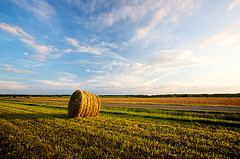
The American Clean Energy and Security Act of 2009, also known as the Waxman-Markey bill, H.R. 2454, is receiving mixed reviews from farm organizations across the country. Some are condemning the bill outright, some are seeking significant changes while others are lending their full support.
The American Farm Bureau Federation (AFBF) has taken dead aim at the legislation, which passed the House by a narrow margin (219-212). AFBF President Bob Stallman recently expressed his opinion characterizing it as “embarking on a fool’s errand,” if the United States attempts to solve this problem alone.
On the other side of the coin, the National Farmers Union and American Farmland Trust have been lobbying their support for the legislation. Conversely commodity groups like the National Corn Growers Association have been more cautious to lend their full support.
All of these organizations stood united throughout the nearly two years of debate on the 2008 farm bill despite efforts by Bush administration officials and environmental groups to tear them apart. These groups seemingly agree on most issues however their leaders are staking out tough positions on the Waxman-Markey bill. That was evident by the recent testimony of Stallman during a hearing by the Senate Committee on Environment and Public Works on the Senate version of the climate change legislation. “Unilateral cap-and-trade legislation will have little or no impact on the climate because greenhouse gas emissions require a global response,” said Stallman. “A ton of GHG (greenhouse gases) emitted in China is the same as a ton of GHG emitted in Virginia. Regulating emissions in Virginia without regulating emissions in China will have little or no effect on the environment.”
In addition, AFBF leaders claim the bill will raise food prices for consumers unless an offset program is put into place to defray production input costs. It is essential for an USDA administered agricultural offsets program however the revenues from offsets will only partially cover the increased costs and not all agriculture sectors will benefit from offset opportunities.
Finally, the AFBF is concerned that while the bill would reduce the use of fossil fuels such as coal and oil, it does not specify what energy source will replace these reductions. Potentially this could lead to energy shortages and much higher energy prices.

